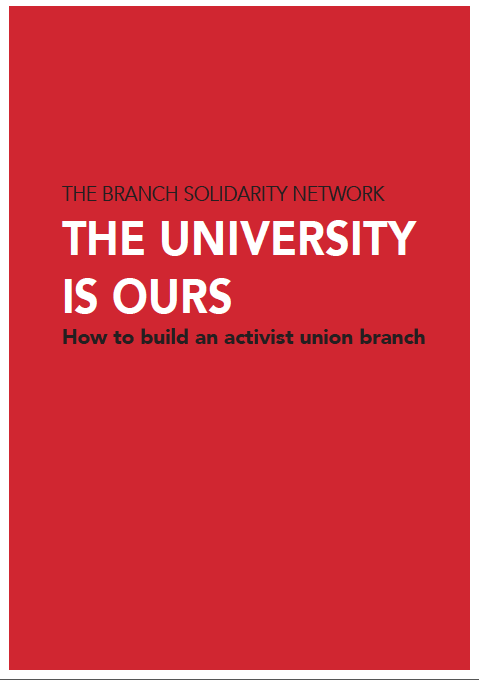Übercapitalism and What Can Be Done About It
 Thursday, October 18, 2018 at 11:02AM
Thursday, October 18, 2018 at 11:02AM 'Übercapitalism and What Can Be Done About It' is my contribution to The University Is Ours: How To Build An Activist Union Branch, a handbook for activists put together by Des Freedman and Susan Kelly for the UCU Branch Solidarity Network, and published in October 2018. The whole handbook can be downloaded for free here.
-----
We live in an increasingly übercapitalist society. It’s übercapitalist in that a specific version of neoliberalism, characterised by low pay, zero-hours and fixed-term contracts, is growing ever more aggressive (the prefix ‘über’ means ‘irresistible’, ‘higher’, ‘more powerful’); and that the disruptive technology firm Uber offers one of the most high-profile examples of this intensified form of deregulated capitalism in which work is becoming low in quality but high in risk and stress.
As recent court judgements against Uber and Pimlico Plumbers demonstrate, precarious workers are still able to fight for better conditions and win, no matter how irresistible these companies may seem. Yet the struggle against übercapitalism is not only a matter of returning to workers the employment rights they have lost as a result of outsourcing and casualisation. Just as business is innovating so we need to invent new strains of unionisation.
The university is a particularly appropriate place to experiment with new techniques for organising labour. It was in the university, after all, that the artistic/entrepreneurial way of life that’s such a prominent feature of digital capitalism, with its emphasis on autonomy, self-management and the blurring of the distinction between work and play, was itself first developed. (Both Facebook and Google have their origins in the university, for instance.)
So how do we develop new forms of solidarity and collective bargaining in the context of übercapitalism? Union branch activists could begin by campaigning for all those working in the university, including students, to retain control of the knowledge and data they generate by placing it under a Peer Production License (PPL) or something similar. Such a licence would function to create a common stock of non-privately owned information that everyone in the institution would collectively manage, share, and be free to access and use on the same equal basis. For instance, it would allow universities as communities to decide that any for-profit business wishing to privatize and commodify their research and the related data must pay a fair price for it (rather than getting it cheaply or indeed for free as is frequently the case now), while also ensuring it remains openly available for use in the non-profit public sphere.
Such an approach would make the academy far less vulnerable to disruption at the hands of any future HE equivalent of Uber. Adopted across the sector, it would enable universities to disrupt privately owned companies such as Elsevier and Academia.edu that have a business model resting on their ability to parasitically trade off publicly funded education and labour.
Better working conditions could also be put into practice. Because any data would be collectively owned and governed, the rights of workers and students regarding such data could be protected – and discriminatory behaviours guarded against. Anything coming even close to the performance monitoring, surveillance and behavioural control of an übercapitalist outfit such as Amazon could be rejected.
Most importantly, such a collaborative, commons-based approach to organising university labour would differ significantly from the hierarchical, top-down, wealth-concentrating ownership and management structure of most übercapitalist firms. The latter take great care to separate their for-profit business from the workers and users who generate it. In the former, however, those who do the work and generate the value – academics, researchers, students, librarians, technicians, managers, administrators, cleaners, caterers, security staff – would also own and control the knowledge and data on which the ‘business’ is built.
The university would then truly be ours.
 Gary Hall | Comments Off |
Gary Hall | Comments Off | 






